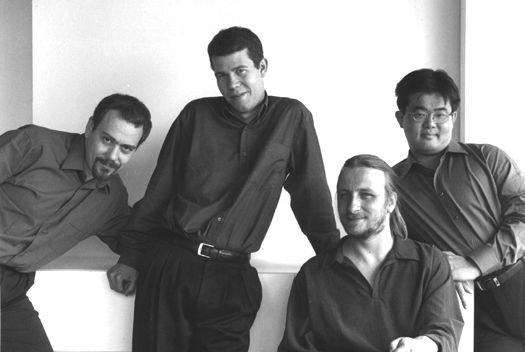Concert
The musical moment
Lecture concert
Languages: English and German with simultaneous translation
How do definitions of beauty contrast within different musical cultures? This is the question to be approached by composers Helmut Lachenmann and Toshio Hosokawa in conversation with the philosopher Rolf Elberfeld. The Tokyo-based Shô player Kô Ishikawa and the Quatuor Diotima from Paris provide the musical part of this lecture concert.
Programme
Quatuor Diotima play Beethoven's Streichquartett Es-Dur op. 74
Lecture part I: Helmut Lachenmann on Beethoven's Streichquartett op. 74
Kô Ishikawa plays traditional music for Shô
Lecture part II: Lachenmann, Hosokawa, Elberfeld
Quatuor Diotima play Hosokawa: Silent Flowers
Lecture part III: Lachenmann, Hosokawa, Elberfeld
Quatuor Diotima play Lachenman: Reigen seliger Geister
"Beauty is an experience of self-intoxication or awakening. Beauty is the clear conscience and raw nerve of that species of human which has never been able to cease hating in the name of love, lying in the name of truth, earning in the name of serving, exploitation in the name of welfare, killing in the name of life, destroying in the name of rescuing, oppression in the name of freedom, and acting stupid in the name of assuming responsibility. The path to the joyful experience of beauty takes one through the experience of fear - whether repressed or accepted - of beauty, namely, to the question, addressed to all human beings, as to whether, and to what degree, they are willing and able to look squarely at their own contradictions and to remain vigilant in full consciousness of this contradiction with respect to what they do - whether their actions be constructive or destructive."
(Helmut Lachenmann, Musik als Abbild vom Menschen)
"Music is art-in-time. Consequently, any discussion of beauty in music is fundamentally linked to the relationship of time and beauty: how does time become beauty through music? Or, to pose the question differently: how does musical beauty arise in relation to its temporal nature, as development and flow (which is also a concept of harmony in Chinese), as cycle and number, as transience or eternity? Whereas in the West a concept of beauty encumbered by rationality has long prevailed which, filled with pathos and a desire for precision, attaches central importance to the categories of the "sublime" and the "eternal", in Japan one finds a concept of beauty that stresses transience and discontinuity: "It is precisely the world's capriciousness that makes it so beautiful." (Yoshido Kenko, 13/14th century.) A concept of beauty that adopts a "situative" stance encounters the notion of seeking beauty in the rejection of habit - which is also a form of discontinuity - in ruptures, in the "transmutations of magic", where music, in its limited temporal quality, succeeds in drawing attention to its own structure."
(Oliver Schneller, project curator)
